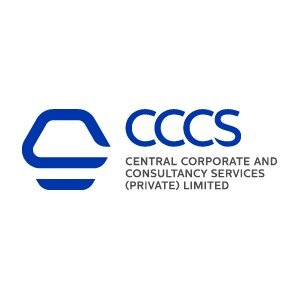Best Sustainable Finance Lawyers in Colombo
Share your needs with us, get contacted by law firms.
Free. Takes 2 min.
List of the best lawyers in Colombo, Sri Lanka
About Sustainable Finance Law in Colombo, Sri Lanka
Sustainable finance is an emerging field in Sri Lanka, particularly in Colombo, which serves as the country's financial hub. This area of law and financial regulation seeks to align financial system developments with sustainability goals, addressing environmental, social, and governance (ESG) factors. Sustainable finance encourages responsible investment, supports green projects, and promotes transparency in both private and public sector financing. In Colombo, the expansion of sustainability in finance is driven by both global trends and national commitments, such as partnerships under the United Nations Sustainable Development Goals (SDGs) and Sri Lanka's Nationally Determined Contributions under the Paris Agreement.
Why You May Need a Lawyer
Navigating the regulatory landscape of sustainable finance in Colombo can be complex. Here are some situations where you may benefit from legal advice:
- Structuring green bonds, sustainable loans, or other ESG-related investment products
- Ensuring compliance with local and international ESG reporting and disclosure requirements
- Due diligence for project financing, especially regarding environmental and social impact
- Resolving disputes related to non-compliance with sustainability standards or certifications
- Dealing with regulatory inquiries or audits by Sri Lankan authorities
- Helping organizations or investors participate in government-sponsored green initiatives
- Understanding tax incentives and other benefits for sustainable finance projects
- Drafting and reviewing contracts with sustainability clauses
Legal professionals experienced in sustainable finance can ensure that your projects comply with all applicable laws, help you interpret complex regulations, and safeguard your interests in a rapidly evolving field.
Local Laws Overview
Sustainable finance in Colombo operates within a framework shaped by both Sri Lankan law and international guidelines. Key aspects include:
- Central Bank Guidelines: The Central Bank of Sri Lanka (CBSL) has introduced frameworks for Environmental and Social Risk Management (ESRM) for banks and financial institutions, emphasizing sustainability in lending and investment decisions.
- Capital Market Development: The Colombo Stock Exchange has encouraged ESG disclosures and the adoption of the Sustainability Reporting Guidance developed with the Securities and Exchange Commission of Sri Lanka.
- Environmental Laws: Various environmental impact assessment (EIA) requirements apply to projects seeking green finance, regulated by the Central Environmental Authority (CEA).
- International Standards: Many financial entities must align with international sustainable finance standards and voluntary frameworks like the Equator Principles, Global Reporting Initiative, and green bond principles.
- Disclosure and Reporting: Local entities may need to provide detailed reporting on the sustainability of their operations or financed projects, particularly when dealing with foreign investors or donors.
These frameworks are still developing, and recent years have seen increased government focus on climate finance, green bonds, and investment in renewable energy and sustainable infrastructure.
Frequently Asked Questions
What is sustainable finance?
Sustainable finance refers to financial services and investments that take environmental, social, and governance (ESG) factors into account, aiming to support sustainable economic growth while minimizing harm to the environment and society.
Are there specific regulations for sustainable finance in Sri Lanka?
Yes, the Central Bank of Sri Lanka has set out guidelines for sustainable banking. Financial institutions must increasingly integrate ESG risks in their decision-making and reporting.
Is it mandatory to disclose ESG practices for companies in Colombo?
The Colombo Stock Exchange has introduced voluntary sustainability reporting guidance. While not yet mandatory for all, companies seeking public investment or participating in certain projects may face disclosure requirements.
Can international investors participate in sustainable finance projects in Colombo?
Yes, international investors are welcome to participate, provided their projects comply with local laws and regulations, including environmental and social safeguards.
What types of projects qualify as 'green' or sustainable?
Typical examples include renewable energy, energy efficiency, sustainable agriculture, water management, pollution prevention, and green infrastructure.
What legal structures are available for launching a sustainable finance initiative?
Options include establishing a private company, partnership, or special purpose vehicle. Each comes with specific regulatory and compliance requirements, which a lawyer can help clarify.
Are there tax incentives for sustainable finance projects in Sri Lanka?
The government sometimes provides tax incentives for investments in renewable energy and other green sectors, though eligibility and schemes may vary over time. Consulting a legal expert is advised.
What is an environmental impact assessment (EIA), and is it required?
An EIA is a process to assess the environmental consequences of a project before approval. It is mandatory for certain categories of projects, especially those with significant environmental interactions.
What happens if a company fails to comply with sustainable finance regulations?
Non-compliance may lead to penalties, loss of licenses, reputational harm, and legal action by regulators or affected parties.
How can a lawyer assist in sustainable finance matters?
A lawyer can guide you through compliance, draft necessary documentation, assist with reporting, represent you in disputes, and offer advice on structuring and implementing sustainable finance strategies.
Additional Resources
For those seeking more information or policy guidance, the following organizations and governmental bodies play key roles in sustainable finance in Sri Lanka:
- Central Bank of Sri Lanka - Issues financial sector regulations and ESG guidelines
- Colombo Stock Exchange - Provides sustainability-related reporting guidance for listed companies
- Securities and Exchange Commission of Sri Lanka - Oversees capital market compliance
- Central Environmental Authority - Regulates environmental impact assessments
- Sri Lanka Sustainable Banking Initiative - Promotes ESG in the financial sector
- Ministry of Environment - Coordinates national policy on climate and sustainability
- Department of Registrar of Companies - For forming legal entities for sustainable projects
Next Steps
If you are considering a project or facing legal questions related to sustainable finance in Colombo, it is advisable to consult a lawyer specializing in this field. Begin by:
- Identifying your main objectives and potential legal issues
- Gathering relevant documents, such as business plans, financial data, and permits
- Scheduling a consultation with an attorney experienced in sustainable finance law
- Discussing compliance strategies and legal structures that best suit your project
- Staying updated on changes in local regulations that may affect your activities
Taking these steps will help ensure that your sustainable finance initiatives are compliant, transparent, and positioned for long-term success in Colombo's evolving financial landscape.
Lawzana helps you find the best lawyers and law firms in Colombo through a curated and pre-screened list of qualified legal professionals. Our platform offers rankings and detailed profiles of attorneys and law firms, allowing you to compare based on practice areas, including Sustainable Finance, experience, and client feedback.
Each profile includes a description of the firm's areas of practice, client reviews, team members and partners, year of establishment, spoken languages, office locations, contact information, social media presence, and any published articles or resources. Most firms on our platform speak English and are experienced in both local and international legal matters.
Get a quote from top-rated law firms in Colombo, Sri Lanka — quickly, securely, and without unnecessary hassle.
Disclaimer:
The information provided on this page is for general informational purposes only and does not constitute legal advice. While we strive to ensure the accuracy and relevance of the content, legal information may change over time, and interpretations of the law can vary. You should always consult with a qualified legal professional for advice specific to your situation.
We disclaim all liability for actions taken or not taken based on the content of this page. If you believe any information is incorrect or outdated, please contact us, and we will review and update it where appropriate.

















